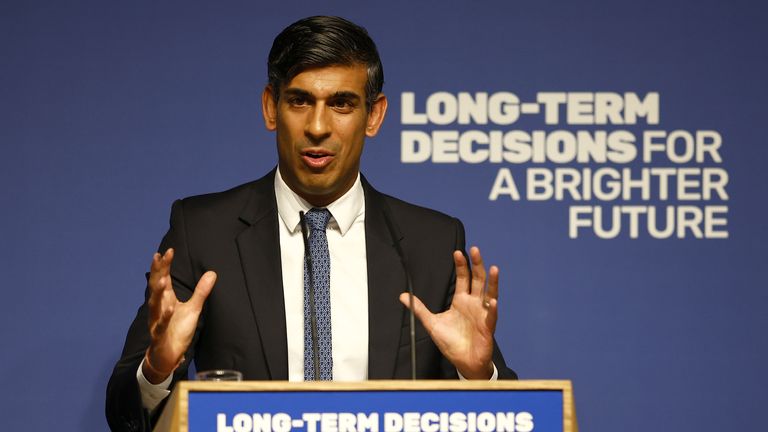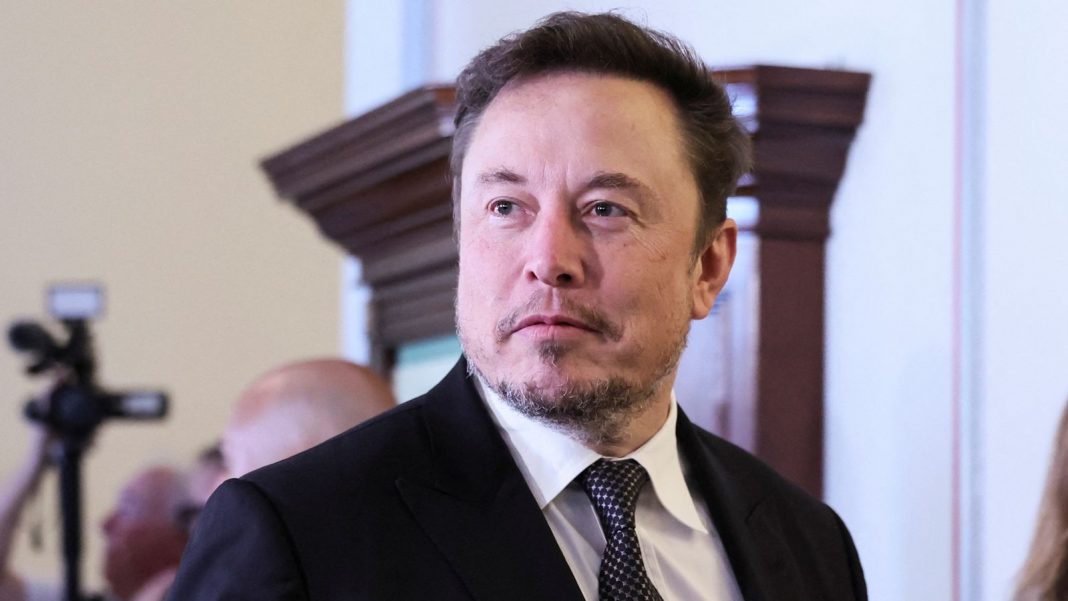Few people have been as outspoken as Elon Musk when it comes to the potential threats posed by AI.
The billionaire owner of SpaceX, Tesla, and the website formerly known as Twitter has been sounding the alarm for several years, warning of Terminator-like scenarios well before the arrival of tools like ChatGPT took the debate from nerdy tech circles right to the heart of public discourse.
Mr Musk’s assessments have been bleaker over the past year, going so far as to suggest “civilisation destruction” is a possible outcome should humans ever develop an AI so powerful that we lose control.
He may be something of a Marmite figure, but we’d all agree that would not be ideal.
Mr Musk will have the perfect opportunity to air his concerns again this week at the UK’s AI safety summit.
He’ll certainly bring some star power and will host an event with Rishi Sunak afterwards on X.
Had it taken place a week ago, their talks could have exposed an apparent dividing line between them.
Mr Musk has spent much of this year welcoming the prospect of regulation of AI, telling the US Congress back in September there was “overwhelming consensus” for it.
Mr Sunak on the other hand has expressed caution, saying too much oversight would stifle innovation.
Please use Chrome browser for a more accessible video player

1:26
Sunak vows to tackle fears around AI
But after Joe Biden announced a sweeping set of safeguards this week, Mr Musk seemed to change his tune.
“Uh oh,” he tweeted, when it was pointed out the president’s proposals included an order to combat “algorithmic discrimination” and ensure AI “advances civil rights”.
In another tweet, he suggested government regulation might be something we regret.
This content is provided by Twitter, which may be using cookies and other technologies.
To show you this content, we need your permission to use cookies.
You can use the buttons below to amend your preferences to enable Twitter cookies or to allow those cookies just once.
You can change your settings at any time via the Privacy Options.
Unfortunately we have been unable to verify if you have consented to Twitter cookies.
To view this content you can use the button below to allow Twitter cookies for this session only.
This content is provided by Twitter, which may be using cookies and other technologies.
To show you this content, we need your permission to use cookies.
You can use the buttons below to amend your preferences to enable Twitter cookies or to allow those cookies just once.
You can change your settings at any time via the Privacy Options.
Unfortunately we have been unable to verify if you have consented to Twitter cookies.
To view this content you can use the button below to allow Twitter cookies for this session only.
Governments do have a tightrope to walk between wanting to regulate and encouraging innovation. Mr Musk may simply think the White House has got the balance wrong.
AI scientist Dr Christian Guttmann, of Pegasystems, says while a “close eye” needs to be kept on how it is used, regulation that’s too restrictive too early risks halting important progress.
With Mr Musk, his scepticism may also just be another example of how his words often contradict his actions.
In March, Mr Musk signed a letter calling for the development of AI to be paused because it was so dangerous.
A month later he said he wanted to develop his own rival to ChatGPT, and then launched his own AI start-up.
The technology has also long been a cornerstone of Tesla, from self-driving cars to plans for a humanoid robot.
Never mind Marmite, Musk is more of a box of chocolates when it comes to his public stance on AI: you never know what you’re going to get.
It should make his X chat with the prime minister an interesting spectacle.







